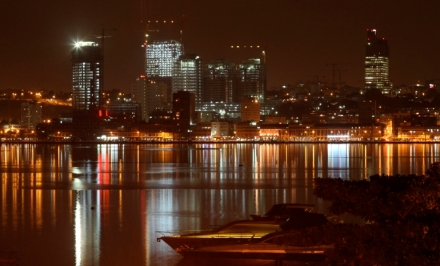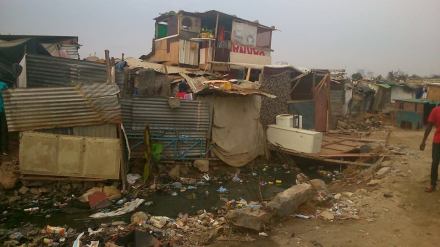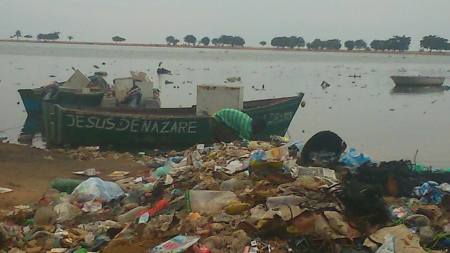What images come to mind when you think of wealth and poverty in Africa and the UK? Is development always good news for the poor? And is it time to move beyond our old ideas of a ‘rich North’ and ‘poor South’?
In August, I was privileged to accompany a delegation of Greater Manchester church leaders to spend time with some of Christian Aid’s partner organisations in Angola to seek answers to these questions…
Angola is far removed from the stereotypical image of an African ‘basket-case’ economy. Luanda, its capital, is a fantastic, bustling city, bursting at the seams with a population of around 5 million people – virtually a third of the country’s total population. After a disastrous 25 year civil war, over the past decade it has been enjoying a fabulous economic boom, due to Angola’s significant wealth in oil and diamonds.
But wealth comes at a cost. Forget Tokyo, Dubai or New York – according to international research, Luanda is now the most expensive city to live in anywhere in the world. A meal at an ‘inexpensive’ restaurant will set you back 20 US dollars, and a one bed apartment in the city centre will set you back an astonishing $3,500 (£2,100) a month. Yet an estimated two-thirds of the people living there exist on less than $2 a day…
Bordering the Atlantic, the city’s bay area is home to some of its most conspicuous wealth – and poverty – side by side. For some, the homes of the poor in ‘informal neighbourhoods’ are a chaotic eyesore, and an impediment to further development. Ramshackle houses, squeezed tight together, they are gradually being ‘replaced’ with more ‘high class’ developments, skyscraper offices, shiny four star hotels and luxury apartments.
Areia Blanca: A modern day Naboth’s vineyard
Barely a stone’s throw from the gleaming new Parliament building being built on the Luandan seafront, we visited a community of people who had been forcibly evicted from their homes on the aptly described Areia Blanca (White Sands) bay for just this reason.
Eighteen months ago the Government sent helicopters, bulldozers, police and military to clear the homes of this small fishing community. Several people died in the three days it took to complete the eviction. The remnants of the community have spent the past year and a half struggling to survive in tiny fly infested shacks built from tin, cardboard and whatever else they could lay their hands no, on a thin strip of beach, with no sanitation and surrounded by rubbish. The community is slowly, but literally dying, as disease takes its toll. We squeezed past one room hovels with people lying sick and too ill to move, and turned down invitations to intrude on the private grief of family whose father had died just that morning. Yet their plight is seemingly invisible to the city authorities, intent on clearing the bay for more luxury homes and hotels.
Sitting with the dispossessed of Areia Blanca my mind went back to a time I had spent more than twenty years ago to Silvertown, at the heart of London’s Docklands; and more recently to Hulme and Ancoats on the edge of Manchester city centre. They may not have been cleared with the same degree of brutality, but their communities suffered a similar fate all the same. ‘Development’ and ‘regeneration’ has come at the expense of the dispossession and dismantling of low income communities who were not judged to ‘fit’ with the new image the city wanted to project to the world: Their land had become too valuable for them to remain. Their ‘regeneration’ could only come at the expense of their own removal.
These in turn are echoes of the story of Naboth’s vineyard (1 Kings 21). Naboth’s bad luck was that his vineyard was close to the palace of King Ahab of Samaria – and Ahab coveted his land. Naboth refused, and paid for it with his life. Yet another story of the rich dispossessing the poor of the little that they have.
For Naboth, read Areia Blanca, Ancoats, Hulme or Silvertown. In the race for ‘development’ the poorest of the poor are, seemingly, always expendable.



